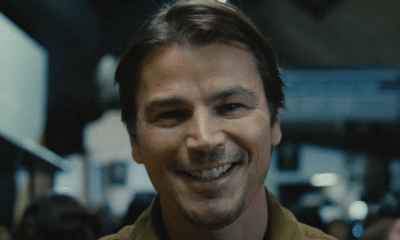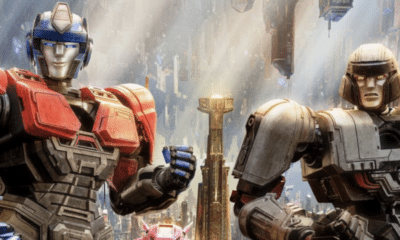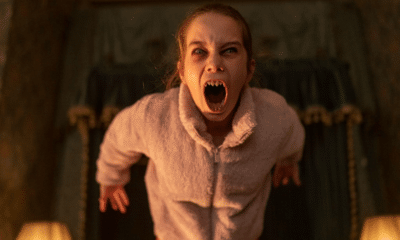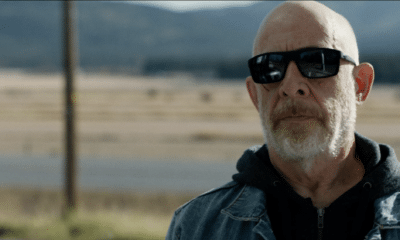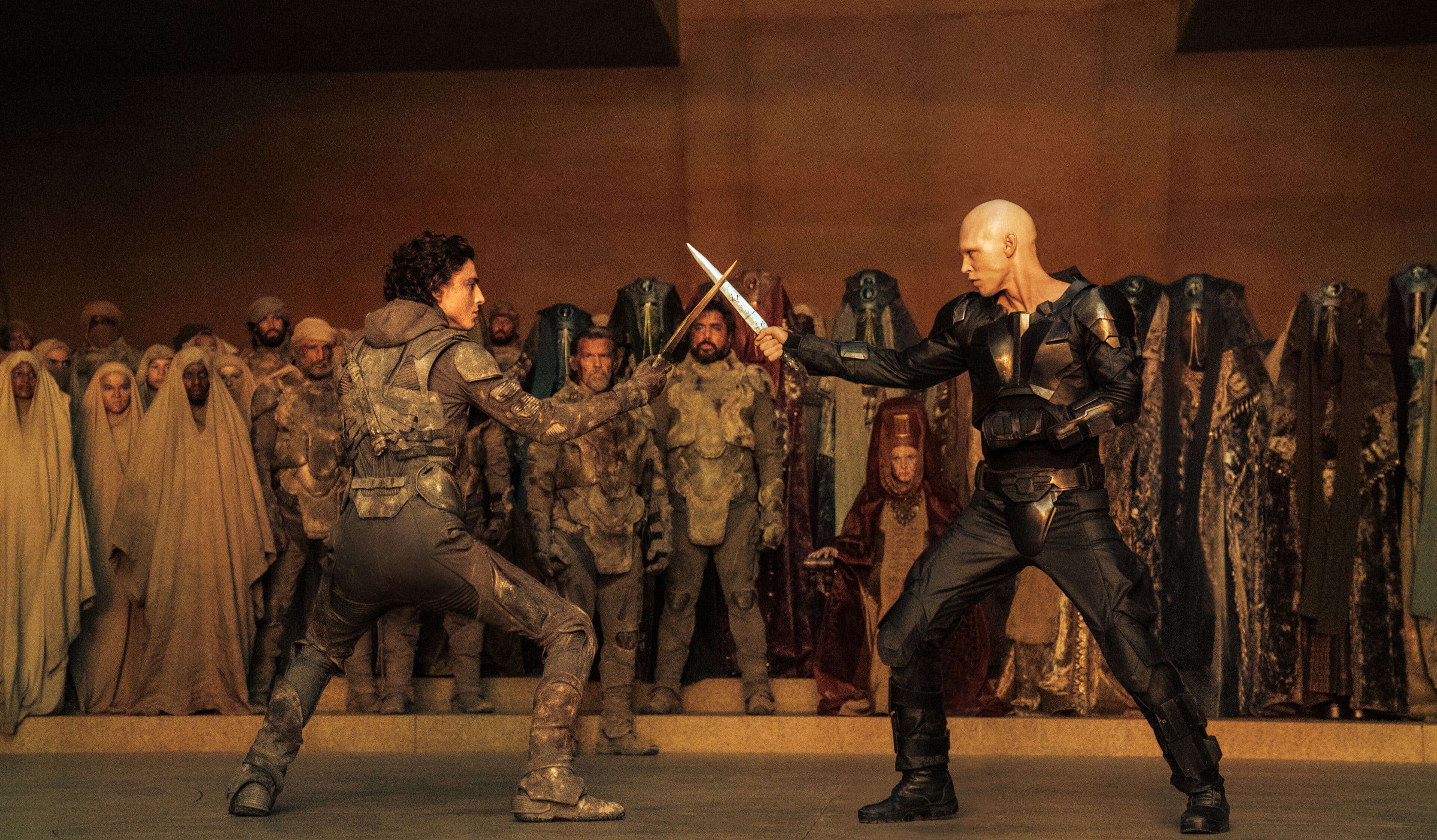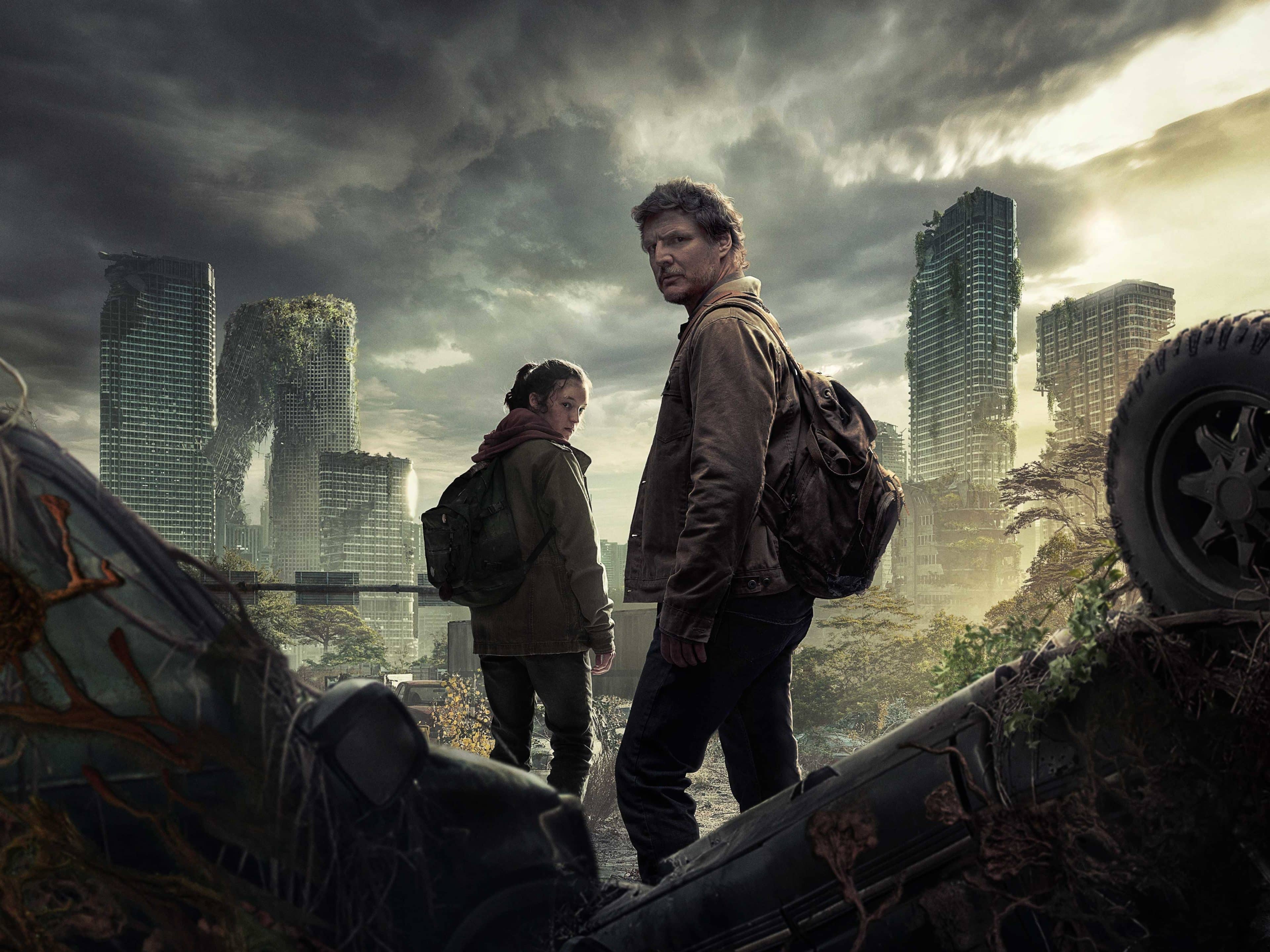Few individuals working in the film industry have been involved in over thirty incredibly successful projects over the past twenty years, and even fewer have been consistently at the peak of their abilities throughout the entirety of their career. Hans Zimmer is a man who ticks both of those boxes, along with a long list of other outstanding achievements.
Zimmer has worked on everything from THE LION KING, to GLADIATOR, to Christopher Nolan’s DARK KNIGHT TRILOGY. As one of the most talented and influential composers in the world, Zimmer’s name is among the most renowned artists of all time, such as John Williams and Howard Shore. Recently, he’s worked on MAN OF STEEL, 12 YEARS A SLAVE and THE AMAZING SPIDER-MAN 2 (the latter of which is still in theatres).
To celebrate the UK DVD and Blu-ray release of Steve McQueen’s excellent 12 YEARS A SLAVE on 12th May, I had the amazing chance to speak to Zimmer for a wonderfully insightful interview. The legendary composer is not only very passionate about his work, but also incredibly humble.
Check out the entire interview here:
[In temporary disbelief that the Hans Zimmer has answered the phone]
Hi, is that Hans Zimmer?
Hans Zimmer: It is indeed!
Hey, it’s Ben Read from The Hollywood News!
HZ: Hey Ben, how are you doing?
I’m very good thank you, how are you?
HZ: Excellent, excellent!
It’s an honour to speak to you; you’re one of the greatest composers of our time
HZ: Oh, thank you! Thank you, that’s really kind of you. I’ll try not to let you down! [Laughs]
Let’s start with 12 YEARS A SLAVE, and our congratulations on a fine score for the film
HZ: Thank you. Well, no, actually I think you need to congratulate the film. One of the great things about that film is…it’s that everybody did their best work on it. I mean, the acting, the writing, and mainly Steve…it’s so Steve McQueen’s movie. You know, at the end of the day it’s Solomon’s movie, because it’s strange working on something where you have to remember that it’s a real story.
The film has obviously accumulated widespread critical acclaim and won numerous awards…I don’t think that I’m alone in saying that it is one of the most important films of all-time. What do you think to the reception of 12 YEARS A SLAVE and how well it has been received?
HZ: Well, as you can imagine it was a struggle for Steve to get it off the ground because it’s not the sort of…you don’t walk into a film studio and say ‘Hey I got this great idea, I’m gonna make this movie called 12 YEARS A SLAVE, which is really serious’, and make everyone jump up and reach for their check books! [laughs]. That in itself gave it the right tone in the way that we working, but I tell you…one of the great moments of my life was one time when we were screening the film. We were screening it in a huge theatre! I mean, it was a beautiful theatre! So it must have been…I would say between six and seven hundred people there right? So it’s big! And the last five minutes of the film…knowing the film, you know, having seen it a hundred times, I just got this feeling of not watching the screen and instead listening to the audience.
There was this otherworldly sound that you will never hear again of six hundred people very quietly sobbing, and it’s the strangest, spookiest sound. Then when the film cut to black there was total silence for I don’t know…a long time! A very long time you know, an unusually long time. At that point I realised that we devastated them and I think the idea that you can tell a story – and it’s told very simply – you can tell a story, and truly get under peoples skin. That’s the best type of movie making there is, and nowadays movies are put in categories so much. It’s literally about…is it a comedy? Or Is it an action movie? It’s so rare that you make a movie which is truly an experience, and I think that for me…you could see that we were all doing it for the money of course, no I don’t think so!
We were doing it because we needed to do it and it was important for the greatest reward of all. Forget the Oscars, forget all that! It’s that moment…that silence when the film cut to black that we knew we had reached people in an honest and honourable way. Anything and everything was about that moment for me.
That actually brings me to my next question. Your piece ‘Solomon’ is an absolutely beautiful piece of music, what does it feel like to work on a film that revolves around one of the greatest tragedies in human history?
HZ: Well at first I said to Steve ‘look Steve I don’t think I can do this, I don’t think I’m ready, I don’t think I’m good enough’, and Steve was great at not taking no for an answer in a fabulous way. So he said ‘come on man, it’s about humanity, it’s about love’, and he kept saying ‘it’s about love…love and dignity, that’s what keeps us going’. So, Steve is a fantastic leader because he is gentle all the way, and we spent a long time talking about the film, talking about everything. So one day I just popped down and I said ‘okay give me a couple of days, let me see if I can come up with something’.
Once I had written the tune [Solomon]…you know, one thing Steve loves is that the tune plays right away at the beginning of the movie, and then it’s the same tune at the end but you hear it completely differently because you’ve gone through the journey. The tune is just like the man…it doesn’t change, it’s the same thing but you can feel it differently. The other thing that took me a second to figure out was that it’s a period film and so everything has to be in period. One of the conversations I kept having with Steve was ‘so how do we make it about now?’ because the one thing that could make it about now was the music. So, I got to write ‘modern music’ or ‘timeless music’ or you know, not of the period and tried to make that into a bridge, or portal through the audience. All I wanted to happen at the end of the day, was to make you leave the theatre and have a huge conversation that none of us have ever quite managed to have about the subject. If you leave the theatre and just have some questions to ask…I love movies that leave you with questions, I always prefer the question to the answer, questions that lead you to somewhere new.
At the same time the process…the way we work, there was a huge advantage to the low budget, you can cast your best friend! You cast your actor. And so Steve would be in the room with his editor Joe Walker, and we would just make music, we would just put the picture up and just go for it. I cast my actors very carefully. My biggest collaborator Benjamin Wallfisch, who I cast because…if you look up the story of his grandmother…she must be one of the last surviving members of the Auschwitz Women’s Orchestra. I knew he grew up with stories, I knew she must have told him stories about what it was like. That was the closest I could get to finding somebody who knew what that sort of life felt like. Also my cellist, a friend of mine who lives in Vienna who is actually East German, grew up under totalitarian regime. So, I cast musicians like actors and I cast them because I never have to explain anything to them, the story was somehow already in their blood and their subconscious almost. You know the scene where Solomon is trying to write the letter? And it doesn’t work, and of course he is in his heights of despair?
Yes, for sure.
HZ: Well, we were just playing the scene and my cellist was quietly humming along as the scene went on, which is not something you’re supposed to do! But it was such a haunting sound. So part of it was just having Steve there and…I don’t know, everybody was just in the spirit of the film, and I think that’s what makes for something special really coming together.
One of the things that I love about the piece ‘Solomon’, is that it’s really emotional but at the same it’s quite uplifting…
HZ: Yes! And it’s not…you know, the things you try and stay away from are sentimental. You know, Woody Strode said to me years ago ‘sentimentality is unearned emotion’ and I try to live by that. So, I really try to dig a little deeper and I work hard you know, it doesn’t come naturally. You sit there and you bang your head against the table and you get through all of your self doubt and all that stuff…and it’s the same every time. You have a blank page in front of you and all you’re hoping is that you’ll get through it, without letting your friend down as a film maker.
This film obviously has quite a delicate subtext, would you say that gives it more depth than some of the fictional films you have worked on?
HZ: Of course it does! But at the same time, the thing that you try to do as a composer is [pauses]…the better the film is, the better the film is written, the better the film is shot, the harder it becomes for the composer. This is because everybody is saying everything already so you have to go and find a little corner somewhere, where there is something left to say, and the only way you can say it is to turn inwards and work from your heart. I mean, I don’t know how else to do it, I never went to music school so the only thing I have is to write from the heart.
Wow, that’s amazing!
HZ: Well, I did have two weeks of piano lessons, but it’s highly true that I’m not trained! So it’s two weeks of piano lessons and playing with great musicians [and] every day I get to learn something.
Changing the subject slightly, you have also recently worked on THE AMAZING SPIDER-MAN 2, can you tell us a little about that process?
HZ: Absolutely! I just finished it a little while back. You know, that’s about as much of a 180 degree turn as you can do! Actually, I was having huge problems doing interviews when 12 YEARS A SLAVE and RUSH came out, because people would ask me about both films and they couldn’t be more different. Now I’m back in that same situation! [laughs] talking about 12 YEARS A SLAVE and then talking about THE AMAZING SPIDER-MAN 2.
So SPIDER-MAN [pauses]…I always wanted to do a movie with a band. Because I thought it was appropriate you know, Peter Parker is young and I think the way he would express his emotions, when his heart gets broken or if he’s in trouble…he would to put on a pop record! He wouldn’t put on something like ‘Horns of Doom’ he would put on Pharrell’s ‘Happy’, or Johnny Marr…you know, all the guys gathered around me. Over a year ago Pharrell and I were just talking about the idea of ‘hey wouldn’t it be fun to actually do a score like this’. So then I ran to Johnny [Marr] and he said ‘what are you up to?’ so I replied ‘I’m doing Spider-Man!’, and it turns out that he is the number one Spider-Man fan in the world! And so then it made sense to carry on with this idea and actually do THE AMAZING SPIDER-MAN 2 together.
What became interesting to me is, I thought it was very New York-ish. One of the things that sets Spider-Man apart from the other superheroes is that he actually lives in a real city, and it’s a very multi-cultural city. I thought there is something really great about having all of these cultures collide and a great moment for me, thinking back, was seeing Johnny [Marr] and Pharrell [Williams] sitting there writing a song together. You know, it’s the guy from Manchester and the guy from Virginia Beach, and they couldn’t come from more different backgrounds, other than the fact that they both have a love for Spider-Man. Of course they also both have a love for music and, this may sound a bit daft, but I didn’t pick them because they’re famous names, they’re famous because they are really good at what they do!
In this sense the process was the same as 12 YEARS A SLAVE, because everybody just came into my writing room and we just sat up like a band and we made music. What we did was, right before we started writing, we persuaded Sony to let us have one of their theatres over on their lot, and we did like a midnight screening where we screened the movie so that it was fresh in our minds. So, we had a first look and we went from there. We just started talking our way through the movie and then occasionally we would break apart and I would go and desperately try to write a tune! So you know, these are great musicians and they were great people to contribute to the score.
What was it like to work with Pharrell Williams?
HZ: Pharrell and I are good friends and…you know he got me to do something that I would never do for anybody else. Here I am with my two weeks of piano lessons and he got me to conduct an orchestra on live television. If you want a disaster to happen then live television is the place to do it! [laughs]. If you want to get egg on your face then go and conduct an orchestra on live television. So, our friendship is basically a friendship of challenging each other and a friendship of ‘we’ll do anything for each other’. On MAN OF STEEL I had this crazy idea for twelve drummers, and Pharrell is a really amazing drummer so I phoned him up and said ‘come on please come and play on this’, and he said ‘I can’t I’m in the middle of Miami, Florida’. Then I said ‘Jason Donovan’s in Miami, Florida and he’s flying out!’ so Pharrell got on a plane, came straight from the airport and we played for nine hours without stop. That was the only day that I could get all of these amazing musicians together, and for him to get on that plane…that’s a friend, that’s a real friend! And he is one of only three friends that I can have real conversations with about my work.
I have one final question. You mentioned making 180 degree turns and working on vastly different projects, what influences your decision when deciding what films to work on?
HZ: Well partly the director [pauses]…a lot the director! You want to know that everybody is going to watch your back, for example 12 YEARS A SLAVE…Steve [McQueen] is an excellent watcher of my back; he’s a man who I trust to make the right decisions. The other thing of course is ‘Will it enable me to try something new?’ and ‘will it enable me to tell a story in a slightly different way?’. I mean, I remember working on one film and the scene was a girl crying in the rain because she had broken up with her boyfriend. The director was trying to explain it to me and he was taking a bit of time and I’m impatient. So, I said to him ‘Excuse me, do you want me to tell you how often I have written this scene in other movies? Girl crying in the rain…I think I know what you’re trying to get across.”
The problem is that I have to find a whole different way of telling it! I had told that story so many times before, how many kisses do you think I have scored, so you always have to figure out another way of doing it. That was my frustration with THE AMAZING SPIDER-MAN 2, because I didn’t come to it out of any other reason than having an idea of how to do it. It’s really nice to sometimes just have the idea before the ask.
Okay, thank you but, unfortunately, I think we have run out of time!
HZ: Well probably, I’m actually supposed to be writing a little bit and you’re supposed to be writing a little bit too! Except we are at the opposite ends of the time scale [laughs]
In my opinion…I love what I do! So it might be coming up to one in the morning [US time] but I love writing, I love writing music…so I could do this for a few more hours!
Well you are certainly extremely talented at what you do, and thanks for your time!
HZ: Oh thank you Ben! You’re welcome, take care!
12 YEARS A SLAVE is out on Blu-ray & DVD 12thMay 2014, courtesy of Entertainment One. You can read our wholly deserving 5-star review here.

Latest Posts
-


Film Trailers
/ 1 day agoM. Night Shyamalan’s ‘Trap’ trailer lands
Anew experience in the world of M. Night Shyamalan.
By Paul Heath -


Film News
/ 2 days agoFirst ‘Transformers One’ teaser trailer debuts IN SPACE!
The animated feature film is heading to cinemas this September.
By Paul Heath -


Film Reviews
/ 2 days ago‘Abigail’ review: Dirs. Matt Bettinelli-Olpin & Tyler Gillett (2024)
Matt Bettinelli-Olpin and Tyler Gillett direct this new horror/ heist hybrid.
By Awais Irfan -


Film Trailers
/ 2 days agoNew trailer for J.K. Simmons-led ‘You Can’t Run Forever’
A trailer has dropped for You Can’t Run Forever, a new thriller led by...
By Paul Heath

